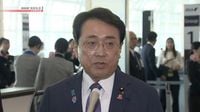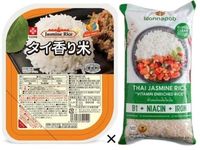On May 15, 2025, Japan’s Commerce Ministry convened to discuss the pressing issue of rice imports, aiming to bolster domestic supplies amid rising demand. The committee emphasized the need to expedite the bidding process and increase import quotas for rice, which is crucial for ensuring stability in the country's rice stock. This move comes as Japan seeks to secure its rice supply chain, especially as the private sector's demand for rice has surged.
Japan employs the SBS (Simultaneous Buy and Sell) system for rice imports. This innovative approach allows importers and domestic buyers—such as wholesalers and processors—to simultaneously submit bids, fostering fair trade practices and enhancing price stability. In 2024, Japan imported 2.8 million tons of Thai rice through this system, which accounted for 7,454 tons. The previous year, 2023, saw imports reaching 3.1 million tons, with 8,155 tons sourced via the SBS system.
The current situation has led to a significant increase in rice prices, driven by a market that is unable to satisfy consumer demand, particularly from the retail and restaurant industries. As a result, the call for increased rice imports has become urgent. The United States has also raised concerns regarding Japan's high tariffs on rice imports, further complicating the trade landscape.
In 2024, Japan's rice consumption is projected to be around 6.81 million tons. Notably, Thai rice is increasingly favored in the Japanese market, bolstered by the presence of approximately 2,300 Thai restaurants across the country. This growing interest in Thai cuisine has led to a higher demand for Thai rice, with many consumers opting for packaged or ready-to-eat Thai rice products available in stores.
Japan also imports specialty rice varieties, such as riceberry and vitamin-enriched rice. The potential increase in import quotas for these rice varieties could provide Thailand with an opportunity to expand its market share in Japan, particularly in high-quality rice exports.
Meanwhile, on the diplomatic front, Akaba Kazuyoshi, Japan's Parliamentary Vice-Minister of Economy, Trade and Industry, affirmed on May 9, 2025, that Japan will continue to advocate for the removal of all tariffs imposed by the United States during Donald Trump's administration. This statement followed a recent trade agreement between the U.S. and the United Kingdom, which saw some tariffs reduced but left many in place.
Akaba's remarks highlight Japan's ongoing efforts to negotiate better trade terms with the U.S., particularly regarding the 25% tariffs on imported cars, steel, and aluminum. The Japanese government has set the removal of these tariffs as a condition for reaching a trade agreement with the U.S. Negotiators from both countries are expected to meet again in mid-May to continue discussions.
“Our stance remains unchanged: Japan will call on the U.S. to reconsider the entire set of tariffs,” Akaba stated, emphasizing the importance of resolving these trade issues. The Japanese government is keen to ensure that any agreement reached will not disadvantage its economy.
Yoji Muto, Japan's Minister of Industry, echoed Akaba's sentiments, stating that the Ministry of Economy, Trade and Industry is committed to assessing the U.S.-U.K. trade deal closely. “We want to examine the contents of the U.S.-U.K. agreement carefully and determine what can be used as a reference for us,” Muto said.
Yoshi Masa Hayashi, the Chief Cabinet Secretary, remarked on the differing positions of each country involved in the negotiations, highlighting that discussions with the U.S. will inevitably differ from those with other nations. This reflects Japan's strategic approach to trade negotiations, where it aims to balance its interests with those of its partners.
In previous negotiations, the U.S. has expressed dissatisfaction with the volume of cars imported from Japan and has pushed for greater access to Japanese agricultural markets. This ongoing dialogue is crucial for Japan as it navigates the complexities of international trade.
As the situation develops, the Japanese government remains focused on enhancing trade relations not only with the U.S. but also with ASEAN countries. Akaba has indicated that Japan is reviewing trade restrictions with these nations and aims to strengthen ties through mutual cooperation.
The implications of these trade discussions are significant for both Japan and Thailand, particularly in the agricultural sector. As Japan seeks to stabilize its rice supply and improve trade relations, Thailand stands to benefit from increased rice exports, provided that tariffs and trade barriers are adequately addressed.
In conclusion, the interplay between Japan's rice import policies and its trade negotiations with the U.S. presents a complex landscape. As Japan strives to secure its agricultural needs and navigate international trade agreements, the outcomes of these discussions will have lasting impacts on both economies.





